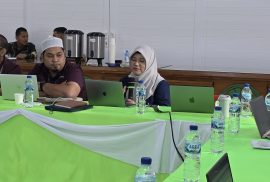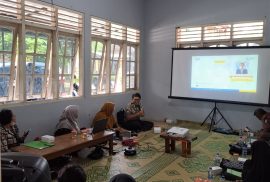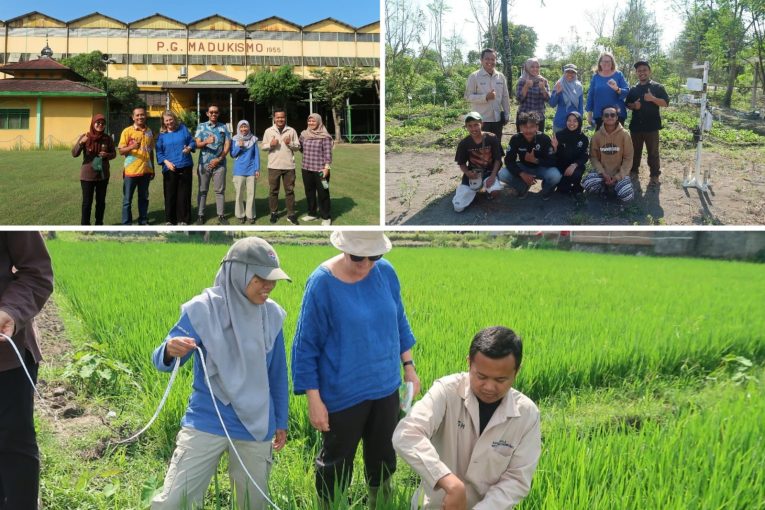
Yogyakarta, July 11, 2025 — The Department of Agricultural and Biosystems Engineering, Faculty of Agricultural Technology, Universitas Gadjah Mada (DTPB FTP UGM), continues to strengthen its international collaboration by hosting an academic field visit by Dr. Rebecca Hood-Nowotny, Priv.-Doz. M.B.A., Ph.D., a lecturer and researcher from BOKU University, Vienna, Austria. This visit is part of the implementation of the ASEA-Uninet 2025 cooperation project, focusing on tropical environmental management and sustainable agriculture.
Dr. Rebecca was accompanied by Dr. Ngadisih and Dr. nat. techn. Rizki Maftukhah from DTPB FTP UGM. The activity also involved teaching assistants Novita Dyah Pitaloka, S.T.P., and Teguh Triyana, S.T.P. Field visit locations included Madukismo Sugar Factory (specifically the spirit processing unit), the Winongo Regional Technical Implementation Unit (UPTD) and its surrounding rice fields, and the Fog Irrigation Experimental Site in the coastal area of Samas Beach, Bantul.
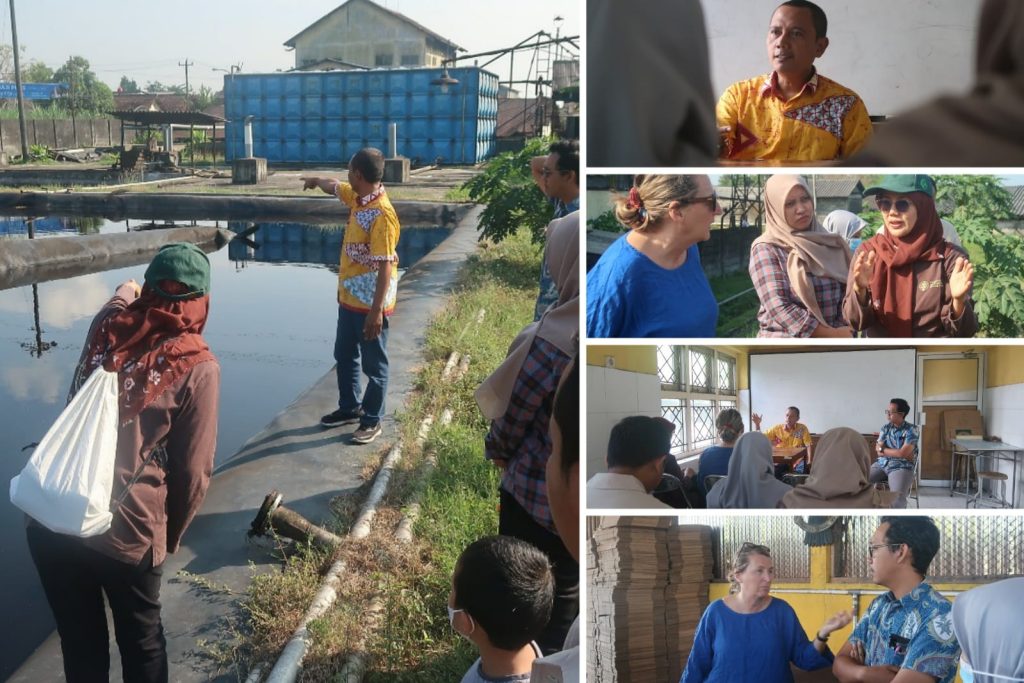
At the first location, the group was welcomed by Mr. Atta Nurrohman, the production supervisor at PT. Madubaru, and Luthfi Dinsaputro, S.T.P., a DTPB FTP UGM alumnus now working there. The visit provided insights into the liquid waste treatment system from sugarcane processing and its utilization as a biofertilizer. This serves as a tangible example of how the agro-industry sector contributes to environmental sustainability and supports circular economy practices.
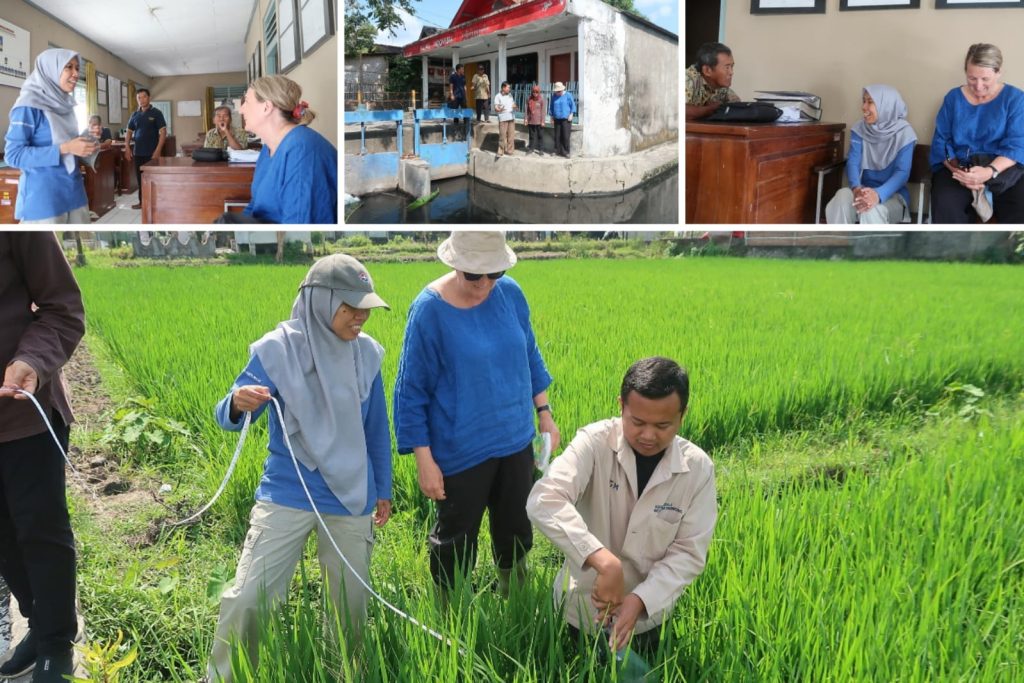
The group then continued to UPTD Winongo, where they held direct discussions local irrigation manager (mantri banyu). The discussion focused on issues of irrigation canal pollution caused by industrial waste and its impact on agriculture. During this visit, the team also collected water and soil samples, along with a few leaf samples from the surrounding rice fields, for further analysis as part of ongoing sustainability research.
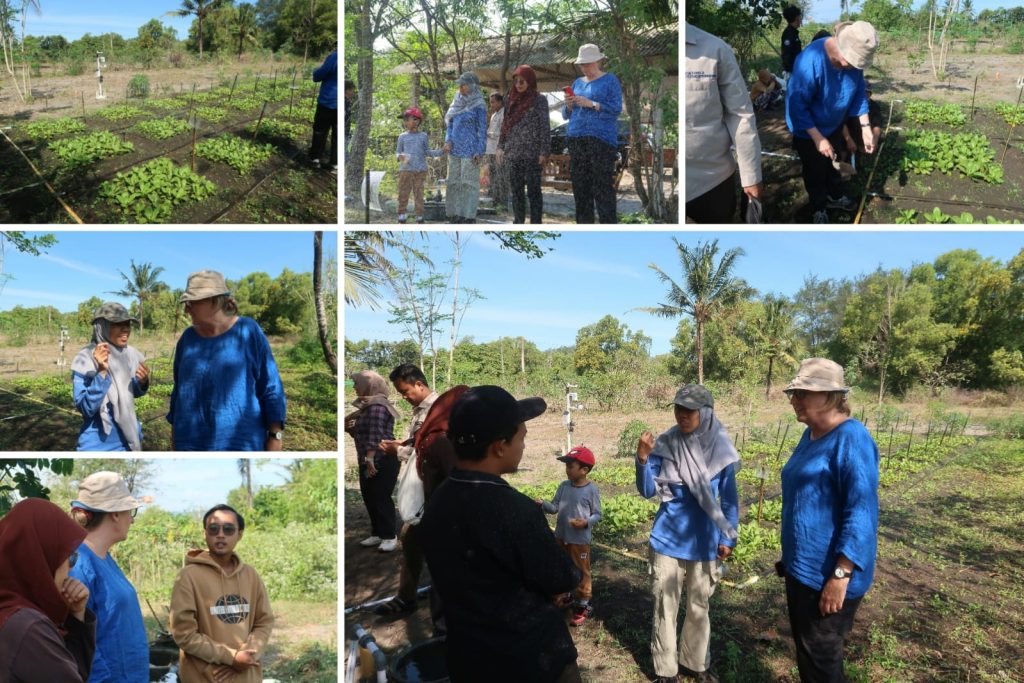
The visit concluded with a stop at the Fog Irrigation Experimental Site on the sandy coastal area of Samas Beach, Bantul. Dr. Rebecca was greeted by Dukuh Panji, a DTPB FTP UGM alumnus, and by Dr. Rizki’s students: Ferghi, Salma, and Jono. The group studied fog irrigation technology applied to vegetable crops grown on sandy soils, using a combination of compost and chemical fertilizers. In-depth discussions were held regarding the challenges of applying this technology, its effectiveness, and how local communities have responded to the innovation in their daily farming practices.
This visit is expected to foster closer research collaboration between DTPB FTP UGM and BOKU Austria in developing Nature-Based Solutions for tropical environmental management, particularly in agriculture and land restoration. The cross-country exchange of knowledge serves as a strategic platform for strengthening research capacity, expanding academic networks, and generating innovations tailored to local needs.
This activity also contributes directly to the achievement of several Sustainable Development Goals (SDGs), including:
-
SDG 6 (Clean Water and Sanitation) by addressing water quality issues in irrigation systems polluted by waste;
-
SDG 12 (Responsible Consumption and Production) by promoting the utilization of waste into valuable products;
-
SDG 13 (Climate Action) through adaptive agricultural practices on marginal lands such as coastal sand dunes;
-
SDG 17 (Partnerships for the Goals) by strengthening international cooperation between higher education institutions and local stakeholders.


